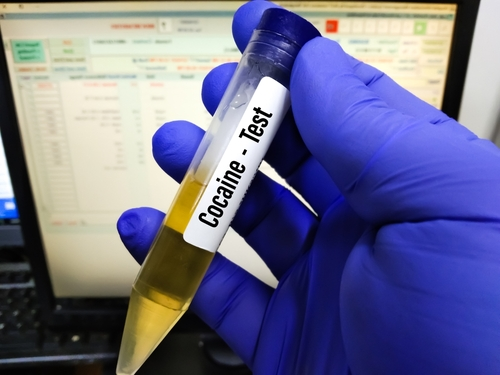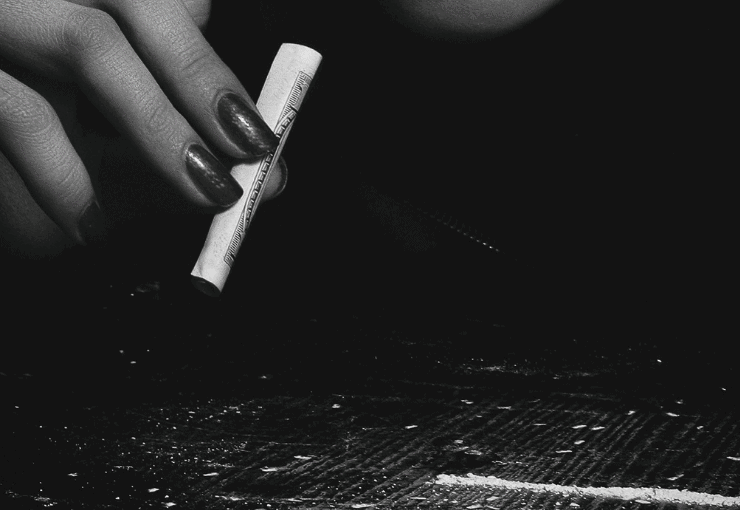If you’ve found yourself searching, “how long does cocaine stay in your system,” it’s probably time to think about getting sober from cocaine. There are many good reasons to get sober, for example, for the sake of your mental and physical health. In other circumstances, people may be motivated to get sober in order to pass a drug test to get a job or start a new chapter of their life. No matter what the motivators are, getting clean is always a step in the right direction.
In order to pass a drug test after using high levels of cocaine, it’s important to know exactly how long the substance will stay in your body after use. For example, if it’s your first day being sober, you won’t want to take a drug test first thing. It’s much safer to wait a few days or even a week or two after your last use to ensure that your body is free from drugs. However, those numbers can vary based on how the drug was used and what type of drug test is being administered.
To learn more about how long cocaine stays in your system, keep reading.
How Long is the High from Cocaine?
Addiction to cocaine can come on fast. This is because the high from cocaine doesn’t last very long, and users are often tempted to use it again and again until they experience a crash. The high from one dose of cocaine can last anywhere from one to two hours, with the peak occurring after about 20-30 minutes.
Because the peak occurs so soon after use and declines from there, addicts will often take another dose before the first dose has completely run its course. This can lead to dangerous side effects, including overdose.
How Long Does It Take For The Effects Of Cocaine To Wear Off?
The effects of cocaine can begin to wear off within 30 minutes to an hour after use, although some residual effects may persist for several hours or even days. The exact duration of the effects and the rate at which they wear off can vary depending on the individual’s metabolism, the dose and purity of the cocaine, and other factors.
How Long Can Cocaine be Detected in the Body?
Cocaine is primarily metabolized by the enzymes in the blood and liver. Depending on how much cocaine was consumed and at what rate, the time it takes to metabolize the substance can change. However, in general, cocaine can be detected in the urine up to 48-96 hours after use. For heavier users, this number may increase. For those who’ve used once, they may be free and clear after the 48 hour period.
However, urine isn’t the only thing that can be tested. Some people may use blood tests or saliva tests for more accurate results. While the half-life of cocaine in urine is 4.1 hours, it’s only 1.5 hours in plasma and 1.2 hours in saliva, meaning that it will take an even shorter amount of time to leave your blood and saliva.
How Long Does Cocaine Stay In The Blood?
Cocaine can be detected in the blood for a relatively short period of time, typically up to 24 hours after use. However, the exact duration can vary depending on several factors, such as the amount used, the frequency of use, and the individual’s metabolism.
What Is The Half-Life Of Cocaine?
The half-life of cocaine can vary depending on several factors, such as the dose, the purity, and the method of administration. Generally, the half-life of cocaine in the blood is about 1 hour, which means that half of the drug will be eliminated from the body within this time frame. However, the half-life of cocaine can be longer in other tissues, such as the brain or liver.
Will Cocaine Show up on my Drug Test?
If you’re worried about cocaine showing up on your blood test, that’s probably a good reason to seek treatment. While getting clean for a drug test is a great idea, you shouldn’t backslide to old habits after your drug test comes back positive. Keep your sobriety going afterward, too. However, if you’re worried about cocaine showing up on an important drug test, you can refer to the numbers above. For the most part, it should be safe to take a drug test if you’ve been clean for one to two weeks.

What Are The Negative Effects of Cocaine Use?
Cocaine use can have a range of negative effects on both physical and mental health. Some of the potential negative effects of cocaine use include:
- Cardiovascular problems: Cocaine can cause heart attacks, strokes, high blood pressure, and other cardiovascular problems. The drug can constrict blood vessels and increase heart rate and blood pressure, which can lead to serious health complications.
- Respiratory problems: Cocaine can cause respiratory problems, including shortness of breath, chest pain, and coughing. It can also lead to lung damage, pneumonia, and other lung-related problems.
- Neurological problems: Cocaine use can cause seizures, headaches, dizziness, and other neurological problems. It can also lead to brain damage, cognitive impairment, and other long-term neurological problems.
- Mental health problems: Cocaine use can lead to or worsen mental health problems, such as depression, anxiety, and paranoia. It can also lead to addiction, which can have a range of negative effects on a person’s mental health and well-being.
- Social problems: Cocaine use can lead to a range of social problems, including financial problems, job loss, relationship problems, and legal troubles. It can also contribute to a range of wider social problems, such as drug-related crime and violence.
Drug Rehab Near Me: How to Seek the Help You Need
If you or a loved one suffers from cocaine addiction, it’s time to get help. You don’t have to keep searching for ‘drug rehab near me. Asheville Recovery Center has got your back. To learn more about our programs and how we can help you or a loved one get and stay sober, call today to speak with a treatment specialist.








